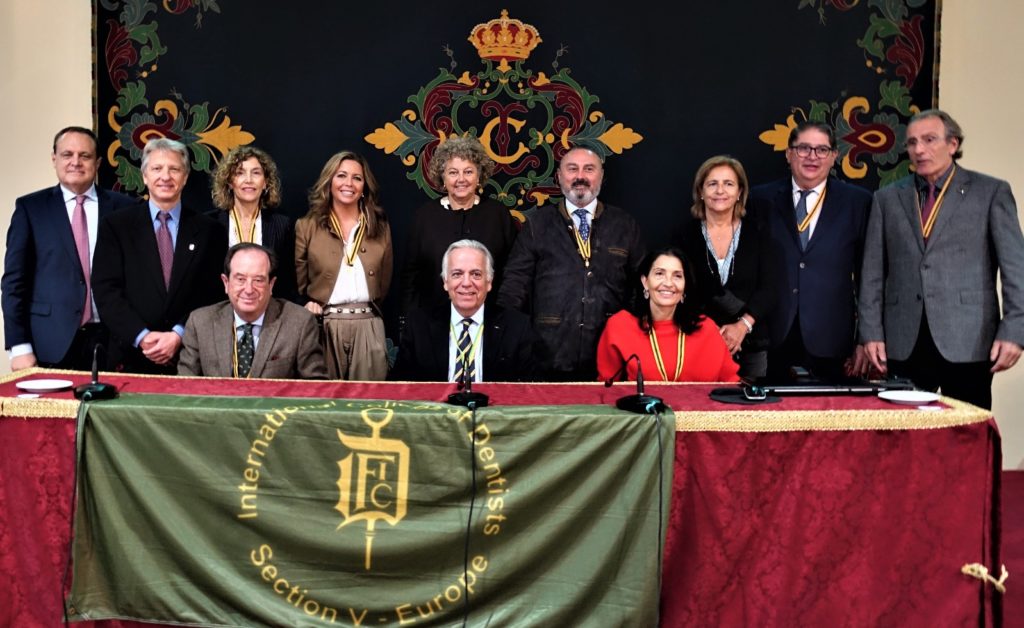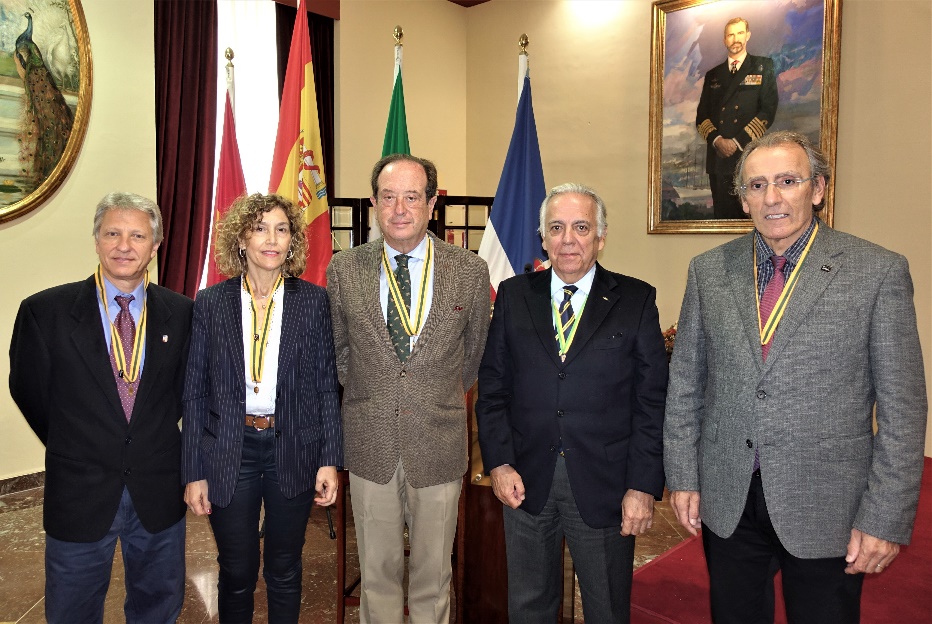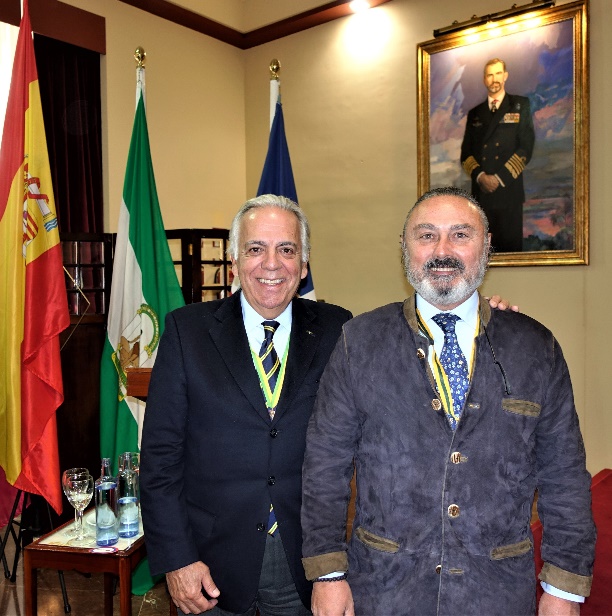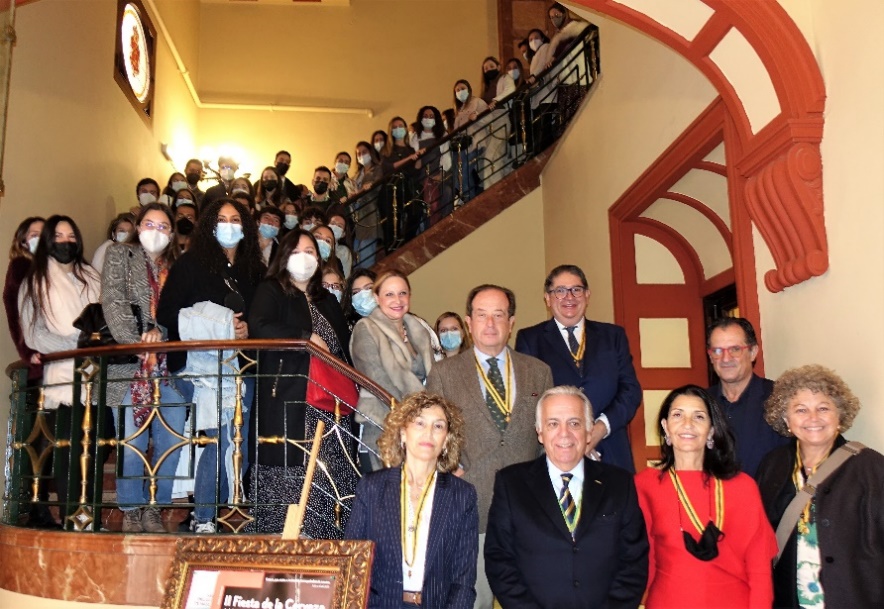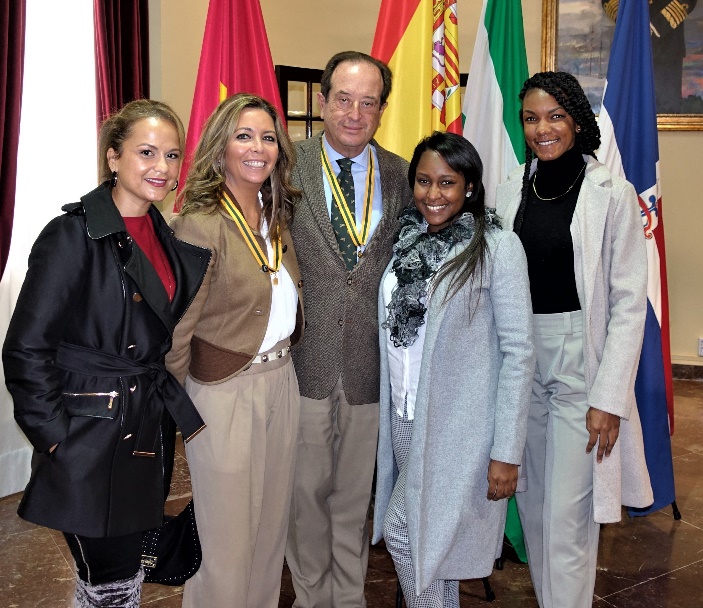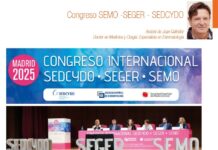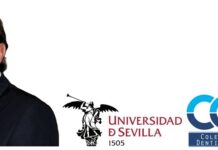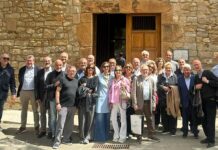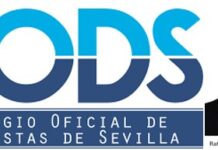Seville November 6, 2021
On November 6, the second Scientific – Solidarity Conference in favor of the Philip Dear Foundation took place in the Spanish city of Seville.
The event was run by Dr. Antonio Castaño Seiquer, organizer of the event and president of the conference who, after welcoming all attendees, gave the floor to Dr. Santiago Jané Noblom, Regent of the International College of Dentist Spain.
Dr. Santiago Jané thanked everyone for their attendance and explained what the International College of Dentist is; an Honorary Scientific Society with more than 100 years since it’s founding in the United States and Japan.
Its motto is «Recognizing service and the opportunity to serve», participating in solidarity projects around the world. To become a member of the organization, one must be invited by a current member. Following the presentation of his/her CV and after obtaining the approval of the Board of Regents. The criteria taken into account when considering a new members admission is: professional quality, dedication and service to the progress of Dentistry for the benefit of society .
The ICD currently has more than 12,000 members and is present in 122 countries. The Philip Dear Foundation, is a Foundation created in 2005 by the European Section of the ICD, whose objective is to promote solidarity and educational projects related to Dentistry. It’s financed by donations and an important part of the dues of the European members of the ICD.
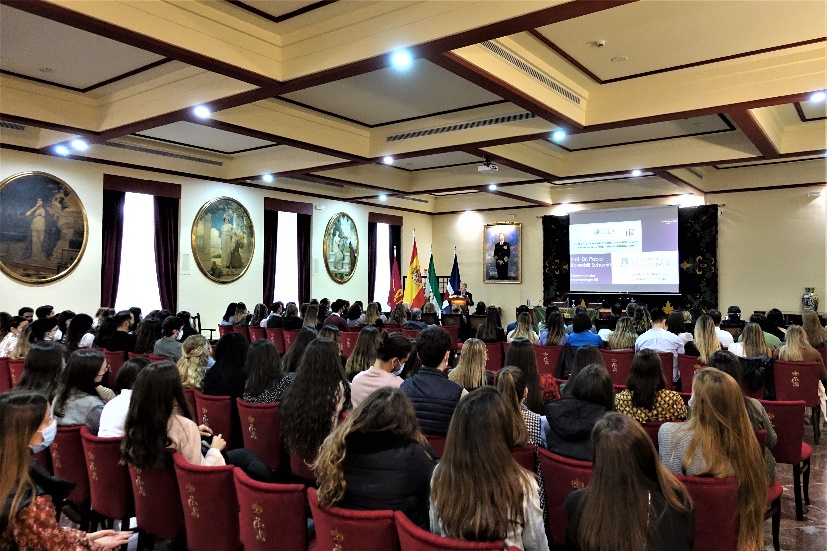
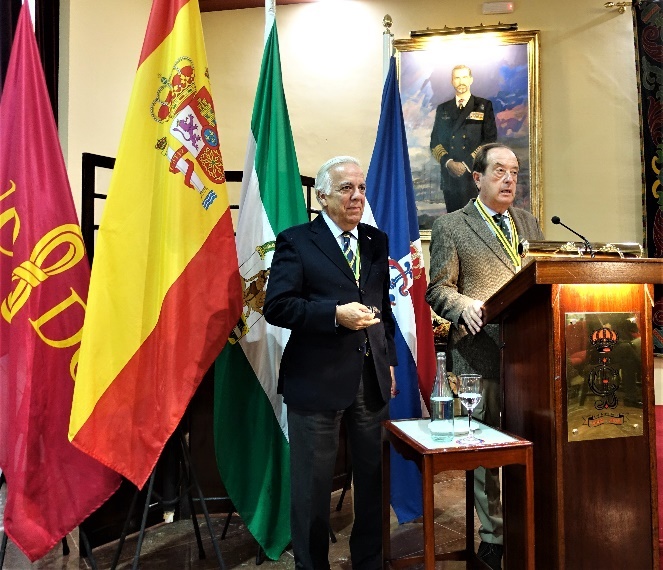
The meeting was then followed by some presentations, the first one was carried out by Dr. Paloma Villalba, professor of the Master in Family and Community Dentistry at the University of Seville. The topic was «Hospital Dentistry. New reality ”.
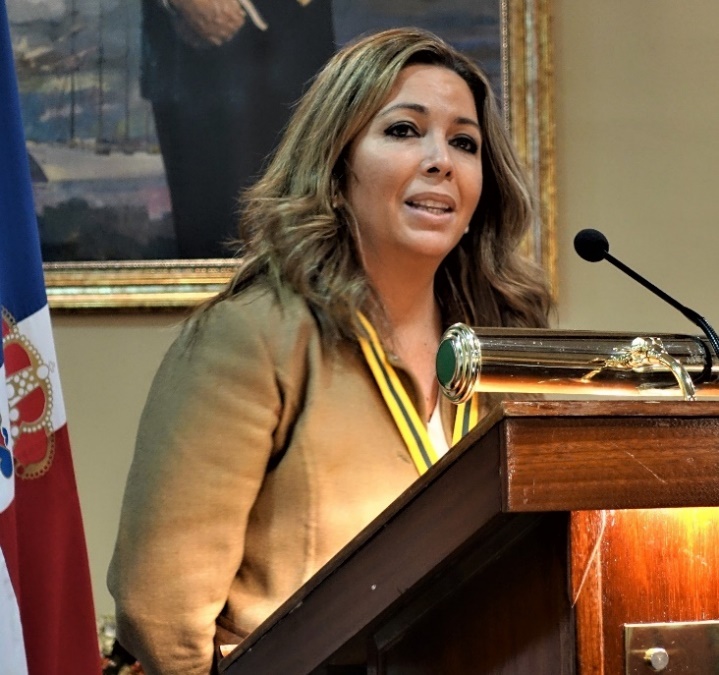
On her presentation Dr. Villalba spoke about despite being 35 years since Dentistry was reimplemented in Spain, as a well-established and well-known profession, the figure of the dentist is still conceived today as a specialist exclusively to teeth. Oral care and therefore the competence framework of the dentist covers much more than teeth and should be part of the general health care.
Dentistry in Spain is practiced mainly in private offices; their underrepresentation in the Public Health System is focalized to Primary Care dentists. These professionals receive extensive training for patient management within the National Health System, functions such as the treatment of mucositis in radiated cancer patients, oral infections in diabetic patients or patients included in possible transplant recipients list (just to name a few), demonstrating the importance of the healthcare activity that a dentist can develop.
Oral care at primary care level is too focused on the development of children’s dental care programs, which, although highly relevant, should not be the only function within public assistance. This is worsen by the fact that, at hospital level, there are no legislators who share this profession, so Dentistry is being integrated into the National Health System by legislators who are unaware of its training and the benefits it can bring to improve the general health of citizens.
There are specific initiatives such as the Clinical Management unit for Maxillofacial Surgery and Stomatology at the Virgen Macarena University Hospital (Seville), which has become the only centre of reference in Andalusia for oral care of patients with certain vulnerability (such as patients on the autism spectrum, with cerebral palsy or at risk of osteonecrosis within others.) this patients with more complex clinical conditions require dental care at a hospital level; or at the Valencian autonomous system which systematically integrates Dentistry as a medical specialty in Hospitals.
As mentioned above, these individual attempts have not yet managed to constitute a solid structure that can be extended to the entire public system. It would be a great success if this becomes a reality in a short time demonstrating that the dental profession is effective and efficient that can contribute to the general health care of the population
Dr. Ana Molina, professor of the Master of Orthodontics at the University of Barcelona, followed Dr.Villalba and spoke about «Updates in orthodontics».
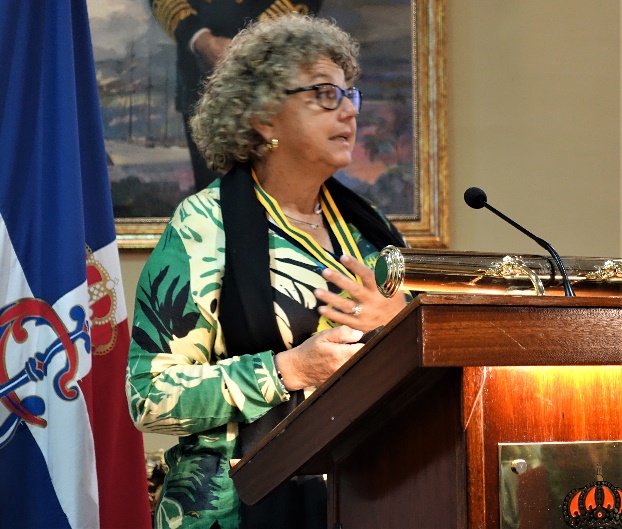
She made a presentation on the current state of treatments and recalled the premise that diagnosis is science and treatment is art, highlighting the importance that we must give to the former in order to achieve a good final result.
Dr. Pablo Barenblit, professor at the Faculty of Dentistry of the University of Barcelona, spoke on “New therapeutic possibilities in implantology”.
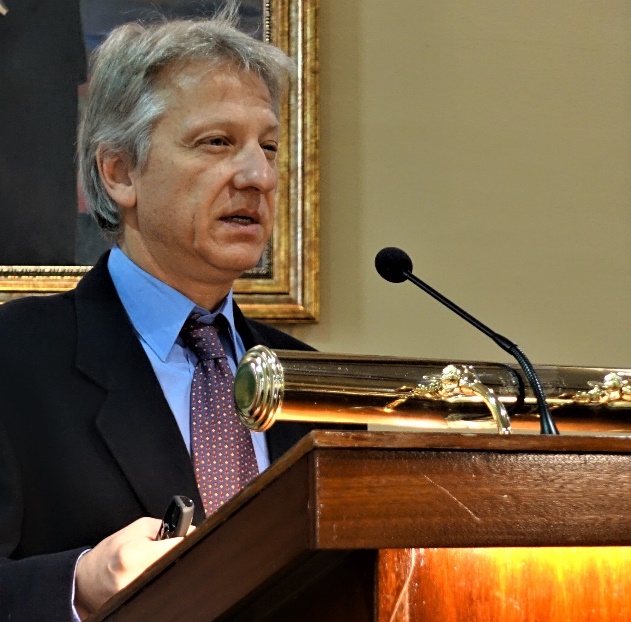
He presented an alternative to synthetic bone regeneration materials, consisting of the use of the patient’s own teeth subjected to a previous grinding and sterilization process. Dr. Barenblit shared some clinical cases treated with this technique. It really caught the attendees interest due to the novelty of the technique.
Dr. Sebastiana Arroyo Bote, professor at the Balearic Islands School of Dentistry, gave her presentation on “Complications in Dental Traumatology”.
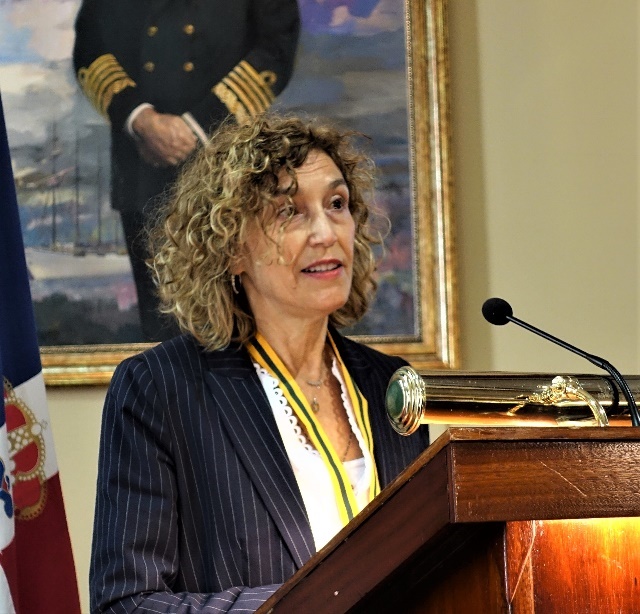
Emphasizing that the most frequent injury in dental traumatology in the permanent dentition is the coronary fracture and in the primary dentition, the dislocation. The fact that the lesion is apparently minor does not guarantee the absence of complications in the pulp tissue or in the periodontium, so a prompt diagnosis is absolutely necessary, avoiding delaying the first visit and carrying out a thorough clinical examination accompanied by complementary tests. She also stressed the importance of temporary trauma due to the possibility of damage to the dental organ of the definitive tooth that is located around the root of the temporary tooth. Likewise, she emphasized on the importance of routine controls and follow-up of the case to be able to solve any possible future problems. It is common for patients to come to the clinic after suffering an accident, however, they do not usually comply with the control visits. She insisted that awareness must be raised and that, to achieve patient retention, a good flow of information is an essential tool.
Dr. Pere Riutord, professor at the Balearic Islands School of Dentistry, gave a lecture on «Tooth whitening: A conflict in Public Health»
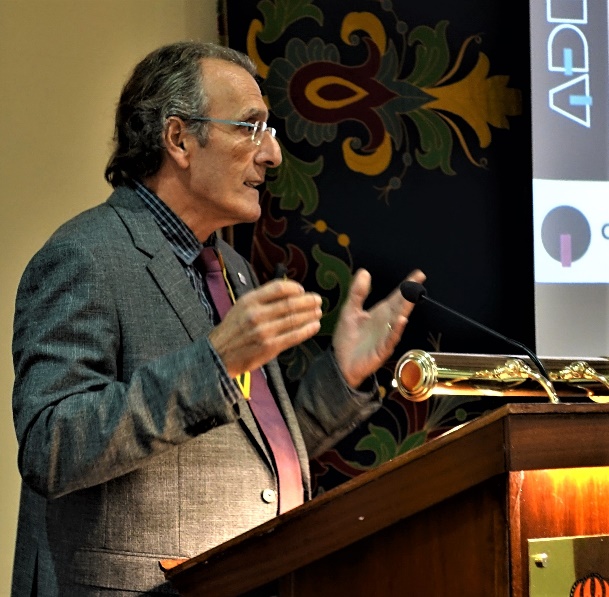
He began his presentation with the studies by the psychologist Chappell which indicated the daily frequency of smiles that human beings manifest according to race, gender, age and social class. He then explained the interest in achieving whitening from the beginning of our civilization to present day, starting with the use of different active principles, up to the use of gels with hydrogen peroxide and its derivative, carbamide peroxide, by means of home application gels such as those introduced by Haywood and Heymann in 1989. It would not be until the year 2000 that a new stage in tooth whitening would begin with the introduction of the enzymatic effect with peroxidase in the use of toothpastes, a patent of which he is the author. The urgent need to whiten the teeth of the current population and the abuse of hydrogen peroxide-based substances has forced the EEC to limit its use to concentrations of only 0.1% hydrogen peroxide, being previously authorized up to the 10%. This is due to the toxicity of this active principle as a possible carcinogen as it easily crosses cell membranes and produces mutations in the genetic material. In this way, the main whitening products sold in pharmacies, including WhiteKin and FKDPlus with enzymatic whitening agents resulting from his patent, can only be dispensed under professional criteria in dental offices, in order to prevent subsequent Public Health problems.
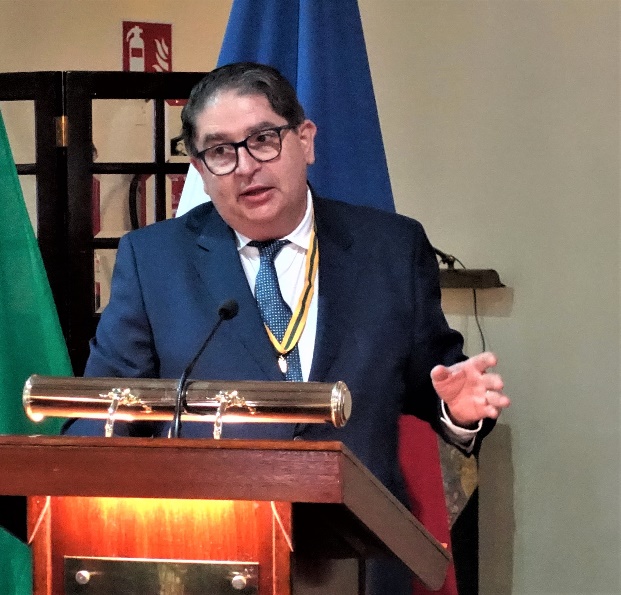
Dr. Juan José Guarro Miquel, Stomatologist, President of AECAD® Business Association of Dental Assistance Centers, CEO de Odontogrup®, Member of the Board of Directors of DentalResidency®, and as newly appointed member of the International College of Dentists, gave us a presentation on «CARE FOR PATIENTS WITH DIFFERENT NEEDS AND LIMITATIONS OF MOBILITY». He addressed this issue, from a social and business point of view, defining the different levels of vulnerability and how the dental companies of which he is part of, have been carrying out actions with the aim of improving the oral health of these type of patients.
Dr. Guarro Miquel explained the plan carried out by the city of Barcelona “Social Fee”, which is led by AECAD®, and consists in extending functional oral treatment to a sector of the population with limited economic resources. More than 100 dental clinics associated with AECAD® participate in this initiative, aiming to providing this vulnerable population, in addition to emphasizing the needs of other types of vulnerabilities. The program also emphasizes the synergies provided by the participation of the private sector, all aimed to providing a better service for those patients with different needs. Either in a classic dental office, or in surgical centers; through Intensive Dentistry techniques under deep anesthetic sedation or with the use of general anesthesia.
The speaker also reflected on the need of adapting the country’s health regulations, given the current demographic reality and that of the immediate future. Thus, with the current projections being that approximately more than 50% of the Spanish population will be over 65 years by 2050; and considering that as of now more that 2,500,000 people are over 80 years of age, Dr. Guarro Miquel shares the idea that the government should reform the current home health dental strategy.
Finally, the speaker emphasized on the ratio of dentists per population in 2050 pointing out that, if the current rate of undergraduates remain stable, we could face an over saturation of dentists arguing that dental gerontology is, as of now, the career path which offers a more promising future.
Dr. Ángel Carrero Vázquez, president of the Official College of Dentists and Stomatologists of Cádiz spoke about «The current reality of Spanish Dentistry»
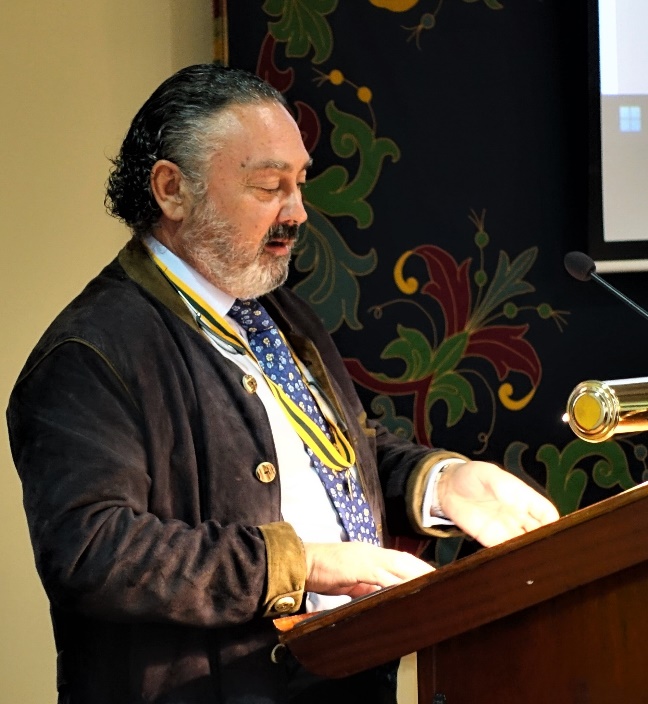
He made a deep and detailed analysis of the current situation of the profession in Spain, presenting graphs on the demographics of the profession, its main problems and the proposed solutions that are being carried out by the Dental Board and that, unfortunately, are not in the Government’s agenda
After the presentations, Dr. Antonio Castaño highlighted the quality of the presentations and praised the attendees for their interest in training, recalling that undergraduate and master’s students of different nationalities were present at this event, giving dimension to the international idea of our organization.
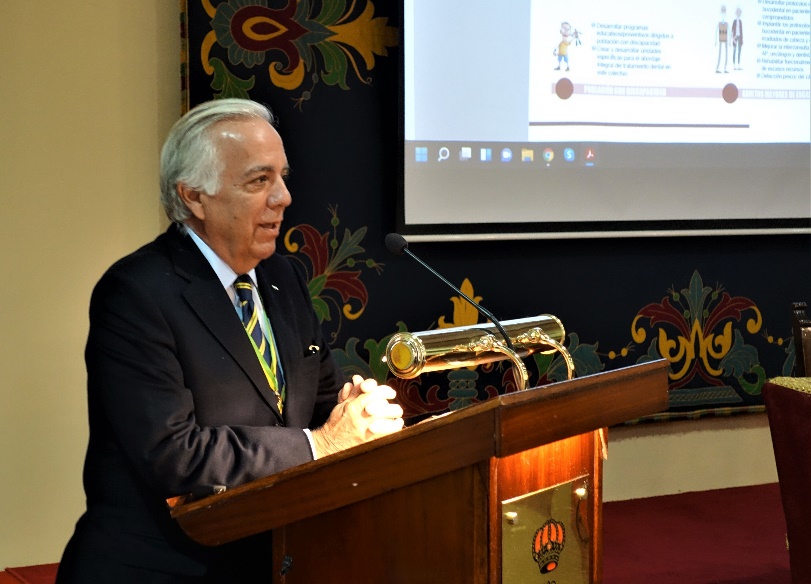
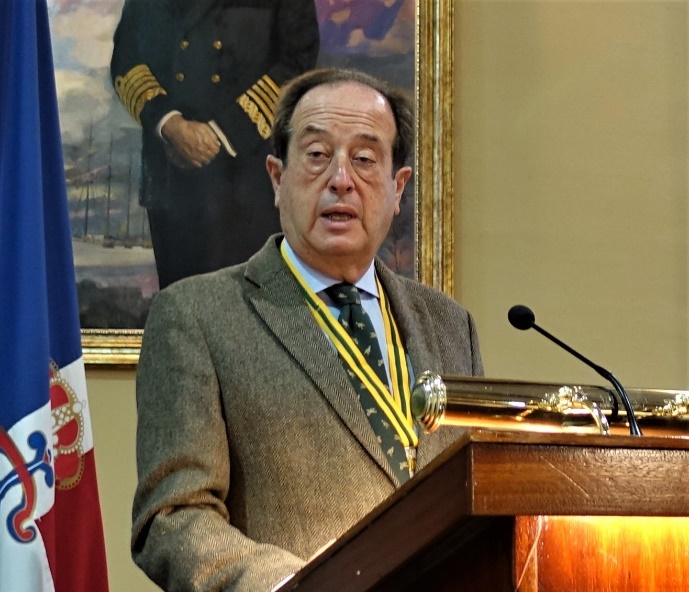
The event was closed by Regent Dr. Santiago Jane who thanked Dr. Antonio Castaño for his work in organizing this event, which he praised by pointing out the “perfect organization, as well as all the speakers for their brilliant presentations and the audience, especially those of the younger generation […]”, whom he called on to strive and acquire a solid training and become a social and professional reference in the future, hoping to see them become part of the International College of Dentist.
The act was closed with the obligatory souvenir photos, a precious memory of such an endearing meeting.

